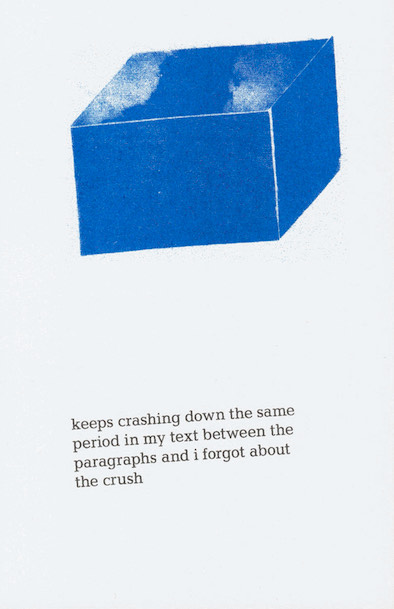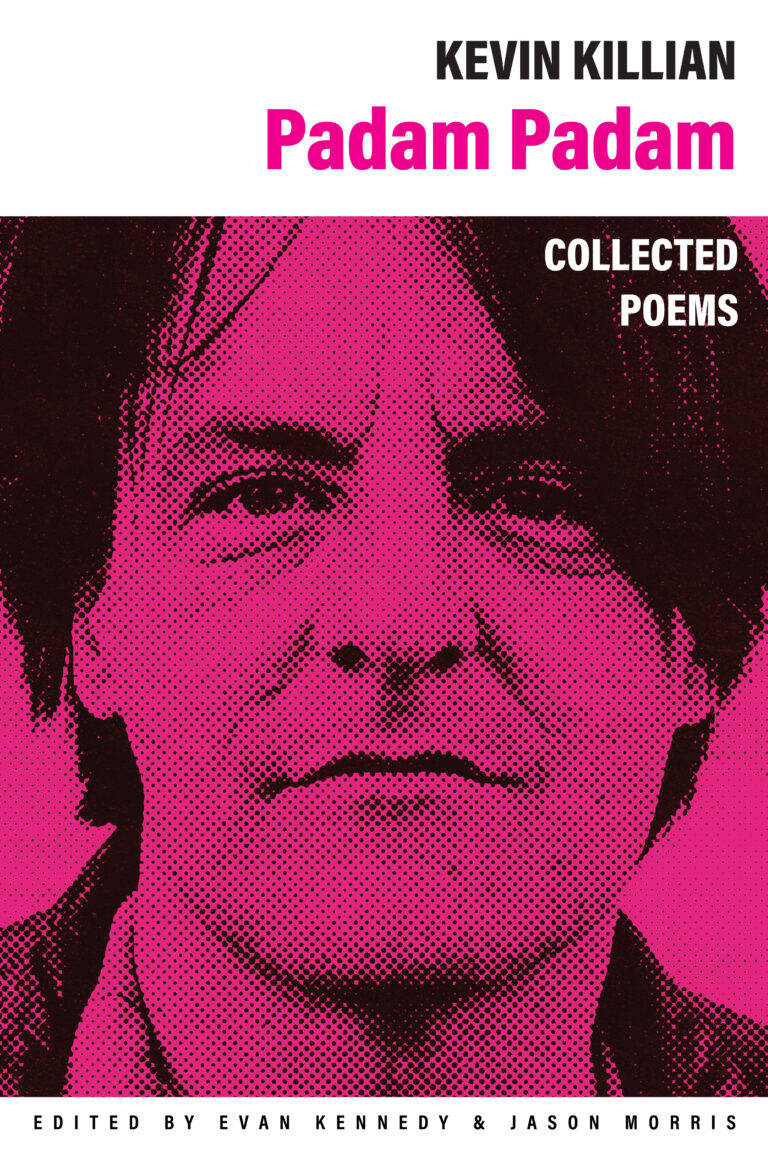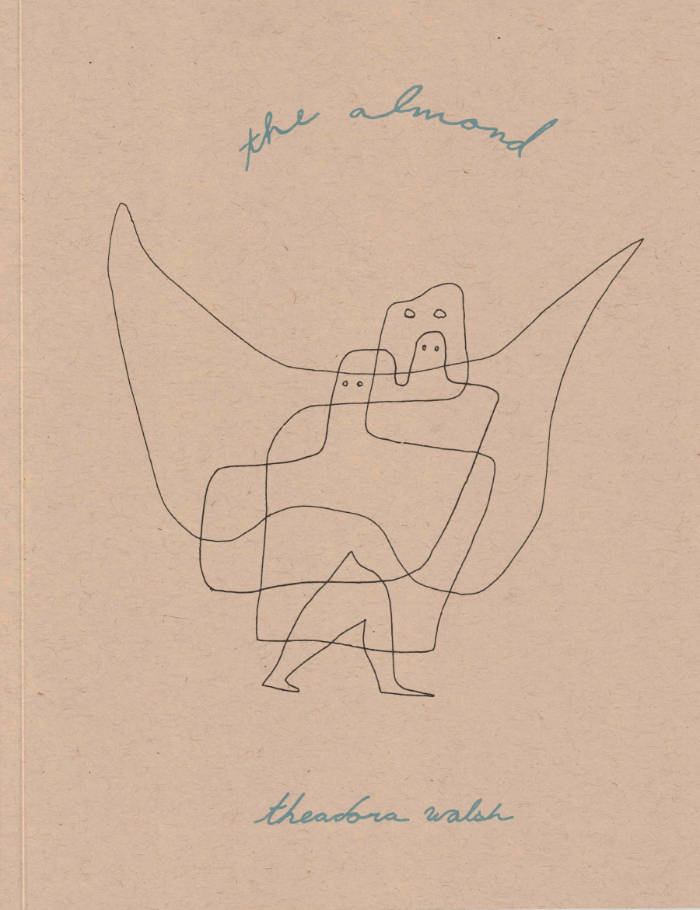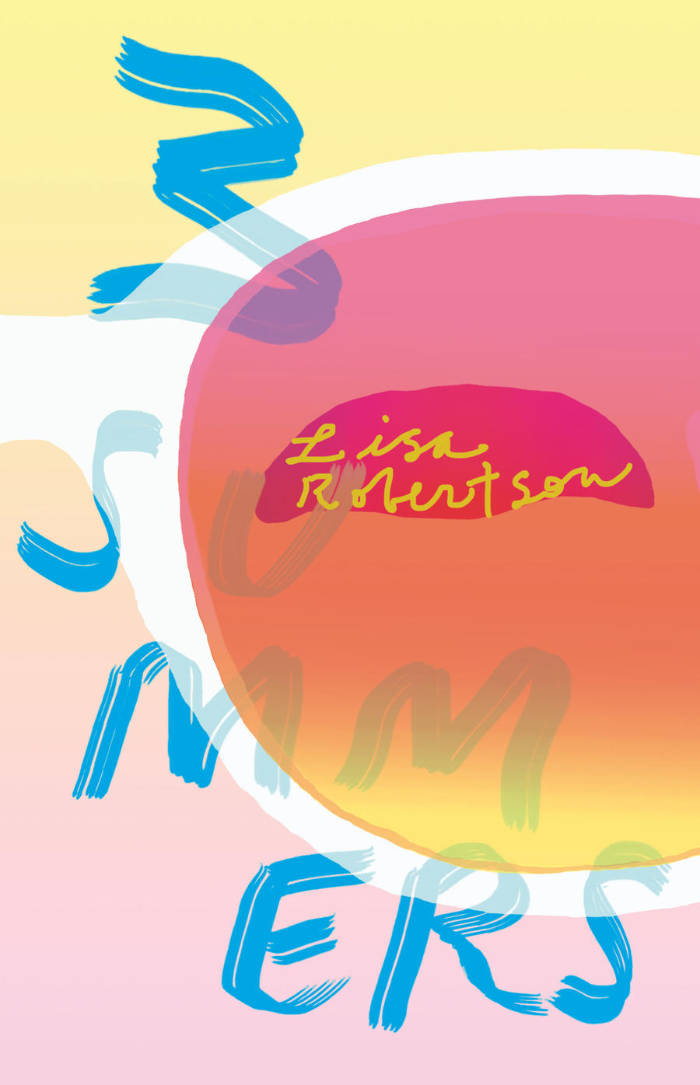
keeps crashing down the same
keeps crashing down the same period in my text between the paragraphs and i forgot about the crush is a book by Stine Sampers, 114 pages of her collected "predictive text songs" written between April 2018 and January 2019 in Brussels, Ghent, Antwerp, Alveringem, Amsterdam and Berrias-et-Casteljau with a Samsung Galaxy S5 (stolen in October 2018 in Brussels) and a Samsung Galaxy S7 (that had to be taught vocabulary). Cover image by Deveny Faruque, afterword by Maru Mushtrieva:
"Here, the longing for the Other – unsurmountable distance – is actualized not only by the content but also by the compositional design itself. What at first glance appears to be a stream of consciousness, is in fact a synthesis of vocabulary from past text messages. While composing them, Stine Sampers used her phone’s algorithm to decide what to say next, with suggestions coming from the text messages previously exchanged with her friends. The words from different contexts, once chosen carefully, now belong to the careless vocabulary of a machine, welcomed into a loop of misrecognition."
Published Nov 2020
Language: English




